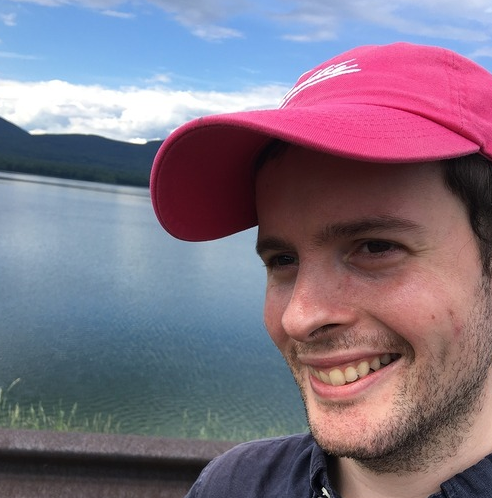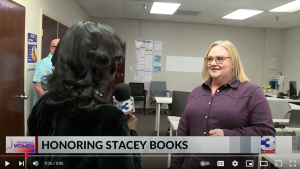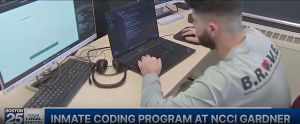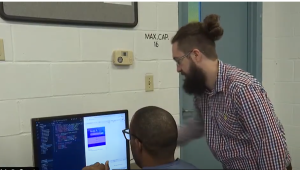Tiana Turman was in the last year of her decade-long prison sentence when she received some welcome news. Due to changes in sentencing laws, Tiana and her family found out that she would be released one year ahead of schedule–a miracle in a desert of negativity and isolation. But it turned out that the miracle was a mirage.
After preparing herself mentally to come out into the world, Tiana learned that the sentencing change didn’t apply to her after all; she would have to serve one more year in Perryville, a complex in Goodyear, Arizona. This hurt worse than if she had never had the hope–and more than hope, certainty–of an early release. “It felt like I had been resentenced,” Tiana says. “I didn’t know what I’d do for that last year. I was ranked at a level where I couldn’t get outside jobs or qualify for an early release on good behavior.”
That was when she found out about Persevere via a flier. At first she despaired of her chances at being accepted into the program–part of the emotionally corrosive cycle that defines life in the American carceral system, that being drained of hope, human beings expect less of themselves. “But this voice inside me,” Tiana says, “was like, ‘You have one year left. If you don’t make it and they shut this door like they shut every other one, at least you know you’ll tried.’”
So she filled out the application, one of 200-some women applying for 22 spots. When she saw she had passed through the first selection, and then the next, she thought, “Maybe I’ll qualify for this program, but I don’t want to get my hopes up.”
When she saw her name on the board as one of the 22 selectees, the effect was electric. Not only the future but the present lit up with possibility. “For once out of all the doors that closed on me,” Tiana says, “this one had opened.”
Before Persevere, and especially after the cruel turn taken at the start of her concluding year, Tiana saw her life on the outside almost as a continuation of her time at Perryville: “By that time I just needed some kind of hope. I didn’t want to get out and be a burden to my family. They’d taken care of me for ten years, constantly putting money on my books.” To leave prison only to continue burdening the people she cared about most, this felt to Tiana like a kind of peonage, a change in her type of incarceration rather than the end of it.
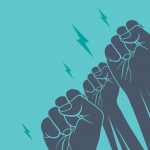 Now, however, the ground had shifted. “Today I’m glad that I wasn’t released early,” Tiana observes. “Even though the conditions were bad–the food was terrible, the officers were awful, and I was very depressed–still I’m glad I had that extra year. If I’d been released early I would’ve been trying to find a job, trying to help provide for my family. Instead I got an extra head start, and with the skills I got, I was able to help my mom pay for her mortgage. I was able to afford Christmas presents for everyone.” On one view, it speaks to the perverse logic of the justice system that Tiana feels happy not to have been released early because the world outside of Perryville would have been so closed off to her.
Now, however, the ground had shifted. “Today I’m glad that I wasn’t released early,” Tiana observes. “Even though the conditions were bad–the food was terrible, the officers were awful, and I was very depressed–still I’m glad I had that extra year. If I’d been released early I would’ve been trying to find a job, trying to help provide for my family. Instead I got an extra head start, and with the skills I got, I was able to help my mom pay for her mortgage. I was able to afford Christmas presents for everyone.” On one view, it speaks to the perverse logic of the justice system that Tiana feels happy not to have been released early because the world outside of Perryville would have been so closed off to her.
Once Tiana entered Persevere, talking to counselors helped uplift her, and in the end carried her forward through the end of her sentence. In the meantime, she got the skills she would need to earn a living once she finished her time. “This was all I had had,” she says. “I got arrested at 18. I never paid bills, had a job, had rent, let alone interacted with people in the workplace. I had no clue what the outside world was. I didn’t even have a sense of what I was behind bars, how prison had molded my personality. And the program helped guide me, teach me how a real job works, how real life is.”
For Tiana, coding skills came naturally. She and the other students would come together to study on the weekends, and Tiana found that she couldn’t be overwhelmed by the material because she was enjoying simply taking it in.  Finally, here was a collaborative, intellectually engaging project, one that actually affected her life to come on the outside, like a stroke of light in a dark room. “I did whatever I had to do. If I had to study for two hours after class, I did that. If I had to ask someone for help, that’s what I did. I was 100% committed.”
Finally, here was a collaborative, intellectually engaging project, one that actually affected her life to come on the outside, like a stroke of light in a dark room. “I did whatever I had to do. If I had to study for two hours after class, I did that. If I had to ask someone for help, that’s what I did. I was 100% committed.”
Once released from Perryville, Tiana went to work as a coder with Banyan Labs. After seven months there, her peer mentor from Persevere reached out about working as a youth and adult coding instructor for Persevere itself. She accepted the offer, happy to help others the same way she was helped–as negativity begets negativity, so it is for positive action. Persevere helped Tiana not only persist but grow, and so she would help others.
Her life on the outside is by turns strange and satisfying. “When I first got out, going to the grocery store, using a debit card–that was way more challenging than building a website. I mean, I was making sites for smartphones without having used one.”
And coding is not only a job for her but a family tradition, a connection between generations. “My grandma worked in coding when she was younger, so we have this common knowledge between us. She’ll sit down and talk to me about it. She’ll say, ‘How do you do that?’, and we’ve gotten closer that way. We didn’t have that before.” In this way skills become more than personal sources of income and career development. They are ways of articulating oneself, showing what one is capable of; and when one shares this with others, it binds them closer, creating the communal ties that prevent recidivism and inspire well-being.
“When Persevere came to me,” she concludes, “I was literally depressed to the point where I didn’t want to wake up. My time was hard and that last year was the hardest. I got fired from a good job. Some officers and inmates were trying to get me off the yard. But then Persevere put a shield around me so no one could affect me. They couldn’t take Persevere away from me. I was part of that 22-women group and we hid in the arms of the program.” Beyond a job, then, coding provided her some kind of hope.

Alec Niedenthal is a writer living in Brooklyn, New York. Born in 1990 in Florida, raised in Birmingham, Alabama, he received his MFA in Fiction from Brown University.
View all posts



